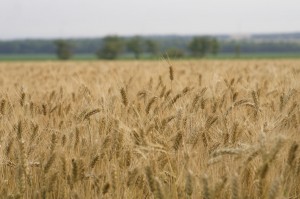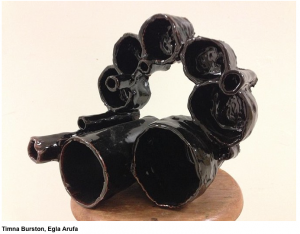Labor Day: Who Steps Up for Justice in the Death of Maria Fernandes & Too Many Other Innocent Workers

“If one is found slain in the land which Adonai your God gives you to possess, lying in the field, and it is not known who has slain him, then your elders and your judges shall come forth….”
Maria Fernandes was a hard worker. Not just at her job. At her three jobs, including shifts at three different Dunkin’ Donuts.
A 2001 Kia Sportage was her chariot. Driving from job to job, an exhausted Maria would occasionally pull over to catch some sleep, if only for an hour or two. She kept extra gasoline in her car so she wouldn’t run out. No, not like that last time. No, now she was prepared.
It was early Monday morning when Maria ducked into a lot off Route 1 & 9 in Elizabeth, New Jersey, for a quick nap. She apparently left the car running. A simple mistake. But the carbon monoxide from her exhaust mixed with fumes from the gas can. The gas can that had tipped over.
Fernandes was found dead in the car that afternoon.
“This sounds like someone who tried desperately to work and make ends meet, and met with a tragic accident,” Elizabeth Police Lt. Daniel Saulnier told Tom Haydon of the New Jersey Star-Ledger.
Saulnier said that no foul play is suspected. A tragic, but innocent, accident.
“Folks … would like to work full-time, but they can’t find the jobs,” explained Carl Van Horn, a labor scholar from Rutgers, in New Brunswick, NJ. “They wind up in these circumstances in which they are exhausted. More commonly it creates just an enormous amount of stress.”
And, sometimes, that cumulative stress results in a tragic accident.
Believers in Divine providence sometimes say there’s no such thing as coincidence. Well, maybe it’s not a coincidence that an economic system built on scarcity and exploitation should result in a tragic “accident.”
And maybe it’s not a coincidence that, on the Jewish calendar, the scriptural reading this week is called Shoftim. Judges. Justice. And maybe it’s not a coincidence that Shoftim includes this teaching:
If one is found slain in the land which Adonai your God gives you to possess, lying in the field, and it is not known who has slain him, then your elders and your judges shall come forth, and they shall measure the distance to the cities which are around him who is slain; And it shall be, that the city which is nearest to the slain man, the elders of that city shall take a heifer … and shall strike the heifer’s neck there in the ravine. (Deuteronomy 21:1-4)
The ritual, known in Hebrew as egla arufa, “the broken-necked heifer,” seems to most folks as a little outdated, to say the least. Some of that crazy Old Testament ritual, right?

Courtesy of the artist: Timna Burston, Egla Arufa, ceramics & spray paint, 2013, www.timnaburston.com/
Is the ritual peculiar? Odd? Unsettling? Well now, shouldn’t it be? A life has been lost? A body was found in a field? Shouldn’t we be unsettled? Maria Fernandes dies alone, in a parking lot?
If that doesn’t bother us, maybe we should strike our own neck, so it can turn around, and look at what we’ve refused to look at.
Modern Israeli scholar Nechama Leibowitz explained that, in fact, this ritual “was designed to shock all the residents of the neighboring localities.” She continues, “all Israel would be made aware of what had happened and would not pass over it to continue with the agenda when innocent blood cried heavenward.”
Something else. A body is found in a field. Nobody knows how it got there. I didn’t do it. Did you do it? Uh uh. What’s that first thing that happens? Who shows up first? The janitor? The cleanup crew?
No. The elders and judges. The leaders. The leaders are called to account.
Yitzhak Bechor Agruiti, the 18th-century Turkish rabbi, writes, “Each death is to disturb and affect us profoundly.”
Not just some deaths. Not just the death of the powerful and famous. Each death. The ritual, continues the rabbi, “involves a participation of the nation’s leaders to try and discover what moral breakdown occurred in the nation as a whole.” What breakdown occurred that we can discover a dead body. In a field. Alone.
And so then, what about us? Do our leaders step up, step forward to answer these questions? When there is death in our fields, our factories, our streets? Do our elders and judges step forward? Does anyone step forward?
When a woman worked so hard to pay the bills that her car became her bed — and, ultimately, her deathbed — suffocated by carbon monoxide and gas fumes and exploitation and greed — did anyone step forward?
When 11 workers were obliterated by the Deepwater Horizon oilrig explosion, when BP and Transocean and Halliburton were known to routinely cut corners and neglect worker safeguards — did anyone step forward?
When Elbert Woods, a 45-year-old Ohio man was killed last week when he was pulled into the machine he was operating for Cleveland Track Material, a company that has been repeatedly cited for improper machine guarding — did anyone step forward?
When Christopher Sheppard and Laurence Daniels were struck and killed by a train during the BART strike, when regulators found that BART deliberately violated safety rules — did anyone step forward?
When Charlene Dill, a 32-year-old mother of three in central Florida, died from an untreated heart condition while selling vacuum cleaner parts, because the state of Florida found it politically untenable to accept Obamacare funds — did anyone step forward?
And, for that matter, when Michael Brown, a boy who dreamed of studying to be a heating and cooling engineer, was shot down in the streets of Ferguson, Missouri, and left, in the field, face down, for four hours — did anyone step forward?
Who steps forward to demand accountability? Who steps forward to demand fair wages? Who steps forward to demand opportunity for all our kids, no matter their pedigree or ethnicity?
Who steps forward to demand safe and honorable work, to demand that one job — not three jobs, but one job — pay enough to allow for family time and community time, to demand that a worker can not only live a life, but also enjoy it?
Our sacred text is clear: “measure the distance to the cities which are around him who is slain.” Measure the distance. The cities of the slain are our cities. The responsibility is on our elders. On our judges. On our leaders. On us. Who will step forward?
This essay is adapted from remarks given on August 28 at “Faith, Work, and Wages: An Educational Forum for the San Francisco Bay Area Faith Community,” in Oakland, CA.
About the Artwork: Timna Burston created Egla Arufa as part of a Jewish Eyes on the Arts salon. Read more about the project, and the artist.
![[the current issue of ZEEK]](../../image/2/100/0/5/uploads/leftistethicistgraphic-52842c6a.png)
- 5000 Pages of Zeek
- Founded in 2001, Zeek was the first Jewish online magazine, and we have over 5000 pages online to prove it, all available free of charge. Read more in the Archive.
More articles by
- We're on Hiatus!
- Euphoria, Curiosity, Exile & the Ongoing Journey of a Hasidic Rebel: A Q & A with Shulem Deen
- Purim’s Power: Despite the Consequences –The Jewish Push for LGBT Rights, Part 3
- Love Sustains: How My Everyday Practices Make My Everyday Activism Possible
- Poet Q, Poet A: Jews Are Funny! Six Poets on Jewish Humor, Poetry & Activism and Survival
More articles in

